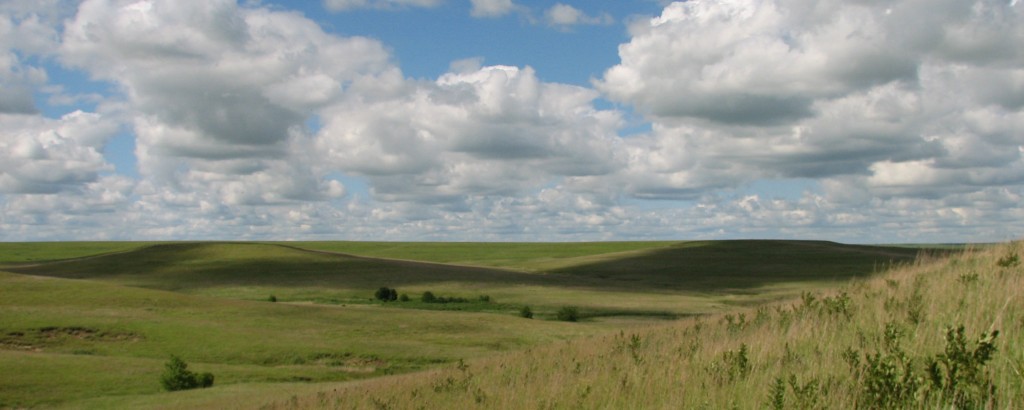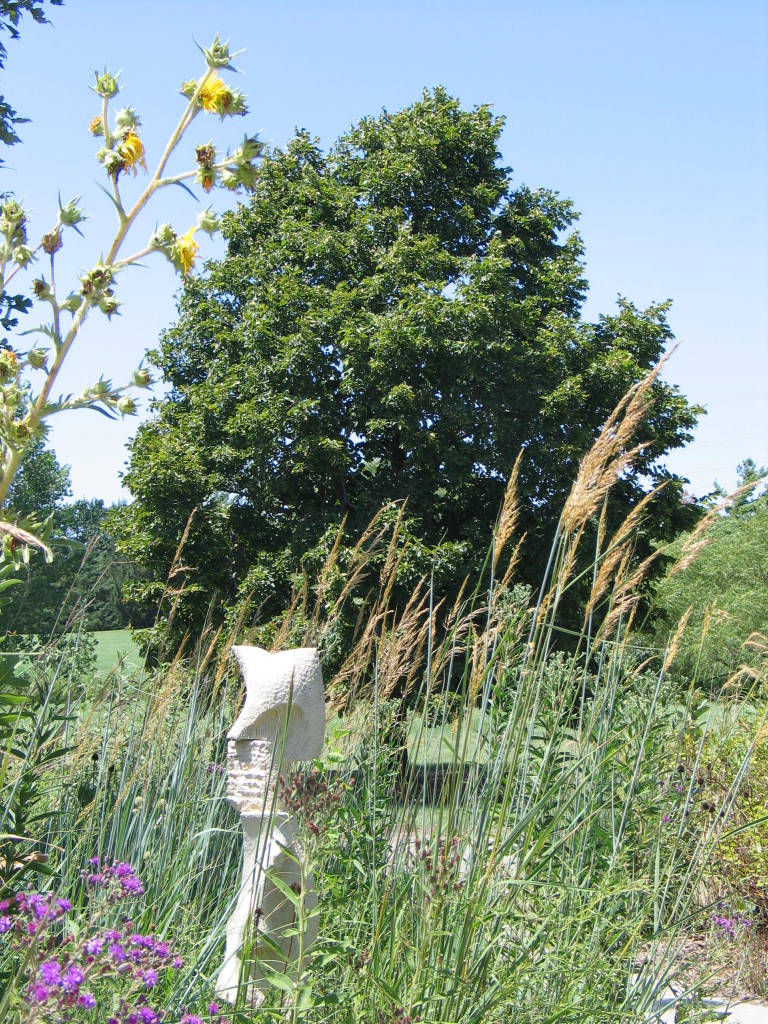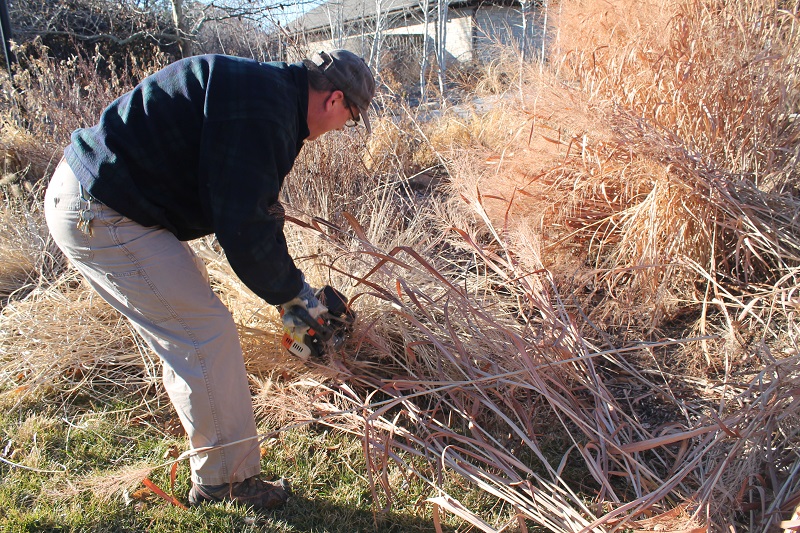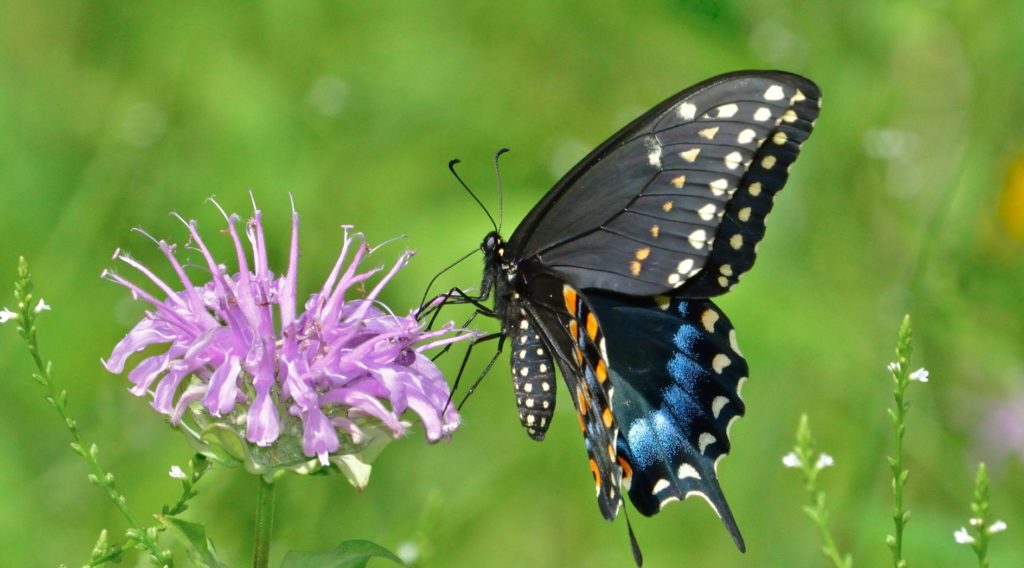In our Prairie Notes blog, we have talked extensively about the need to utilize native plants in the landscape. The benefits of having native plants are obvious and many. We have shown you pretty pictures with nicely spaced plants and beautiful combinations of wildflowers and grasses. Often, you get the sense that in order to have an attractive garden it has to be perfect.
Perfect gardens are maintained by perfect people or by horticulturists who do this sort of thing for a living. I don’t know of too many perfect people. In reality, perfection is in the eye of the beholder. Our gardens are a reflection of who we are and how much time we are able and willing to spend tending these landscapes. In fact, there is a growing trend (pun intended) that focuses less on maintenance and more on the natural order we see in nature.

Perfection can be a mess
The randomness of the prairie is easy to see and it flourishes effortlessly. Plants are intertwined and touching each other. There is not much space between plants. Instead, a matrix of lush, densely organized plants grow harmoniously together. To some, this looks messy and unkempt, but this natural collection of plants has a beauty and resiliency that is also healthy and productive.

Designing your imperfect garden
The thought of an imperfect garden is counter cultural. The idea that we would purposely design and then establish plants in our landscapes that mimic the prairie goes against just about every landscaping principle we have ever learned. However, more and more people are embracing the natural landscaping trend. We are creating a sense of place. These newly developed gardens incorporate a network of plants by grouping them together with similar growth requirements, and different textures and heights to completely cover the soil. All of these plants crowd out weeds and create layers that look natural in their setting. This idea takes the pressure out of growing the perfect garden and instead allows you to enjoy the process.
Maintenance of an imperfect garden
Imperfect gardens are not zero maintenance gardens. Some level of maintenance is still important, but being tied to your garden will be a thing of the past. Again, you may have to let some things go and work toward being comfortable having less control of the natural processes. A few dandelions and clover in the lawn can be overlooked. Letting some plants naturally seed and spread along with uneven rows and random plants that have moved from last year can now be tolerated. For us who want to control everything in the garden, we now have permission to back off a little and see what happens. We still need to pull some weeds, especially at first, but as time passes weeds will become less of a problem.

If you plant it, they will come.
An imperfect garden will attract visitors. Pollinators, birds, and other wildlife will be drawn to your intentional prairie garden. A functional garden will be used, and sometimes abused, by pollinators. Your landscape is providing just what wildlife needs. A few eaten leaves and damaged flowers is a small price to pay for helping complete the life cycle of a few thousand pollinators and other wildlife. Even some unwanted pests may visit from time to time. This is a perfect time to watch your imperfect garden take care of itself. Keep the chemicals in the shed and watch the natural predators find these pests and work to eliminate them. Should we really care if they are not all gone? You have my permission to step back and let the little critters work it out amongst themselves.

Your garden is a reflection of you. You are already having a bigger impact than you might imagine. Don’t be shamed into thinking that you have to have everything in its place. Sometimes the most aesthetically pleasing garden is sterile and void of plants that actually help the environment. By gardening, you are already an ecologist. You may not have the official title, but you are a good gardener.
RELAX, step back and enjoy the process. Don’t stress about the sad little plant in the corner of you garden. If it’s not happy, move it. Learn about what your plants need. Most of us don’t garden for a living, so give yourself a little grace. A perfect garden is one that gives you not stress, but joy.
